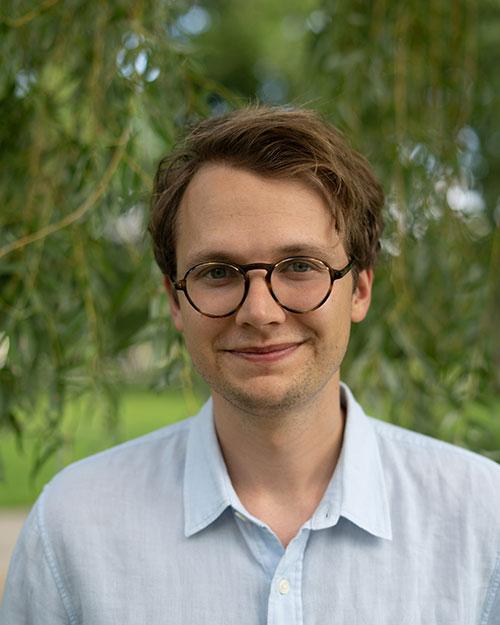Instructor Spotlight: Magnus Ferguson

Tell us about your background and what inspired you to teach this course
A lot of my previous research has focused on various kinds of transformative, 'breakthrough' experiences that shift one's sense of self. I've increasingly become interested in politically or ethically transformative experiences – for example, experiences that shift one's sense of responsibility. My dissertation focused on the moral emotion of feeling accountable for someone else's wrongdoing (for example a friend, or family member, or coworker). I think taking these emotions seriously as moral and political forces is not only interesting, but also important to understand for the purposes of advocacy and solidarity-building. All of this led me to the open question of this course: What is the role of emotion in the polis? It's been a privilege to explore different answers to that question collaboratively with my students, each of whom brings a different set of intuitions and experiences to the conversation.
You’ve taught a different course with the ExCollege before - what inspired you to come back, and with a whole new proposal?
I had a great experience teaching "Ethics of Ignorance" in 2020, even considering the difficulties of that semester with Covid and the political tension in the air. This current course is definitely informed by those conversations, as well as what often feels like a steadily escalating emotional tenor in political media and dialogue.
What’s one way in which emotions have shaped our political landscape in the last few years?
One emotion that has garnered a lot of attention over the last few years is the emotion associated with inheriting troubled legacies and systems related to, for example, settler colonialism, racism, and slavery. The way in which we describe this emotion – in terms of guilt, or shame, or regret, or something else – has huge stakes for whether we take it seriously, or instead dismiss it as something excessive or pathological.
Are there trends in how emotions are thought about in the realms of politics? Where do you see these trends going, or what trends from the past do you find interesting?
We spent the early weeks of the semester looking at classical theories of emotion from the Greeks and Romans. Despite important differences, a common thread through Plato, the Stoics, and Boethius is that emotions are something to be conquered or controlled through reason. This is true both of the individual exercising her reason over her passions and appetites, and also of the political order in which rulers ought to harness the power of political emotion for the purposes of justice, order, and balance. In recent years, scholars and activists have reexamined some of the emotions (anger, guilt, shame, fear) that have been traditionally discussed as politically volatile, and considered productive purposes for them. The tension between these 20th- and 21st-century analyses and their historical counterparts is a lot of fun to work through in the class discussion.
What do you hope that students will take away from your course?
Our relationship to our emotions changes when we bring them forward in conversation with others. My students have already demonstrated a commendable willingness to discuss their own emotions, as well as to consider how to ethically and carefully try to understand others' emotions. I hope this kind of habituation to careful and vulnerable conversations about each others' emotions is something that they can take with them after the course ends.
What’s been your favorite moment in class so far?
An important moment in the course was when a student (bravely, I might add) brought up his own experiences of anger. Almost immediately, other students began offering their own experiences as objects of analysis. That session really shifted the terrain of the course, because it took us away from interpreting text, and instead put the text to work in interpreting students' own lives.
Magnus Ferguson recently completed his PhD in the Philosophy Department at Boston College, and will be taking up a faculty position this coming fall at the University of Chicago. He studies 20th-Century European philosophy and political philosophy, and has published work on philosophical hermeneutics, feminist philosophy, and social epistemology. He is also the Director of Corrupt the Youth Boston, an organization providing engaging and uplifting philosophical experiences to underserved public high school students in the Boston area.